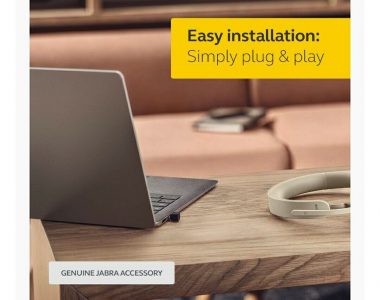
Small business owners need to consider many factors when choosing an energy contract. The whole process can feel overwhelming without proper research. That’s why it’s good for small businesses to implement an energy procurement strategy.
By understanding energy procurement and the types of energy contracts available, you can develop strategies to better control your business’ energy consumption and limit overall spending.
Understanding Small Business Energy Purchases
Energy procurement is the process of obtaining the fuel or electricity that powers your business. It requires working with energy suppliers and utilities to find the energy contract that best suits your specific business needs. To get the most out of your small business energy purchasing strategy, it helps to shop around and compare your options until you find the service you need at the right price.
Some states are turning to energy deregulation as a way to give energy customers more say in where and how they get their energy. In a deregulated market, customers can choose their energy suppliers and plans, which helps keep energy prices low while preventing monopolies and increased competition among suppliers.
Do all small businesses need an energy procurement strategy?
No matter how much energy your small business uses, an energy procurement strategy can help you minimize indirect energy costs and increase overall energy efficiency. Here are some of the many types of small businesses that can benefit from developing an energy procurement strategy:
Dining room
storehouse
retailer
manufacturer
construction company
Who is involved in the energy procurement process?
Depending on the circumstances, several parties may be involved in the commercial energy procurement process:
energy customers. A customer is a business or entity wishing to purchase energy. While not always necessary, some businesses—such as those with high energy costs—may decide to hire someone specifically to develop cost-saving energy purchasing strategies.
energy supplier. An energy provider, or supplier, is the retail energy company that sets your rates and sets the length of your contract. When choosing an energy provider, it’s important to compare your options until you find a plan that’s right for your business.
utility company. Utilities are responsible for distributing energy to customers and servicing outages and emergencies. Some utilities produce the electricity they supply, while others buy electricity from third-party suppliers, such as other utilities or independent power producers.
Energy Broker. Energy brokers act as go-betweens for energy customers and producers. They will work hard to understand the needs and goals of your small business in order to find the best supplier for you.
Different Types of Energy Contracts for Small Businesses
There are many aspects to choosing the right energy plan. An energy purchasing strategy for small businesses can simplify the process, help you outline your needs and identify potential ways to save money. The type of energy contract that is best for your business depends on several factors, such as how your business uses energy and how much risk you are willing to take.
fixed rate
A fixed rate contract allows you to secure one set energy rate for a period of time, say two years. When you set a fixed rate, it stays the same no matter how the market price changes. While your bill will still depend on how much energy you use in a given month, choosing a fixed contract as your energy purchasing strategy can provide the benefits of stable rates and more consistent energy spending.
Fixed Price Tiering Strategy
You also have the option to use a fixed price tiering strategy when purchasing energy for your small business. With this approach, you can “tier” your energy purchases over time. For example, you might decide to purchase 25% of the load every six months on a two-year contract.
Strategies like this can help you hedge the time risk of locking in rates for a longer period of time and potentially save you money. But you still get the stability and predictability of a fixed plan.
variable rate
In a variable rate contract, the rate you pay for energy changes from month to month as the market changes. When comparing variable energy plans to fixed energy plans, variable plans offer more freedom to switch providers and increase savings when market prices fall.
But these energy contracts come with greater risks. Your rates will vary from bill to bill, and you may pay more for energy when market prices rise.
index pricing
With indexed energy contracts, your rates are determined directly by market conditions. Index contracts are 0% fixed, which means your price per load is constantly changing as the market price rises and falls. Indexed contracts are considered one of the riskier energy procurement strategies due to their strong reliance on external factors. But they can also save a lot of money if done right.
mix
Hybrid or tiered energy contracts can be an effective small business energy procurement strategy. Hybrid contracts allow you to combine aspects of variable and fixed plans to get the most out of your energy budget.
You can “mix” your contracts in a number of ways, but the best approach will depend on the needs and risk tolerance of your particular business. For example, you might decide to do a 50-50 mix on your energy contracts. This means that 50% of the energy you use will be charged at a fixed rate, while the other 50% will be charged at an index rate. Or, if you’re open to the market, you could do something like a 70-30 mix where 70% of your energy is tied to the index.
No matter which hybrid option you choose, the goal of a hybrid contract is to give some consistency to your energy bills while allowing you to benefit from lower prices.
Questions to ask when buying energy for your business
When purchasing energy for your small business, it is important to consider how your business operates and uses energy. For example, you need to ask yourself the following questions:
What kind of fuel does my business need?
How much energy does my business typically use?
What is my business’ energy budget?
What is my ideal contract term?
What are the priorities and goals of my business?
What is the current market energy price?
How much risk am I willing to take?
Benefits of Energy Purchase Programs
Businesses can benefit from an energy procurement strategy in a number of ways:
Gain greater control over your plans. A business energy purchasing strategy can help you better control things like fuel costs, contract lengths, and billing schedules.
higher reliability. With the right energy purchasing strategy, you can minimize financial risk and achieve more predictable, consistent energy bills each month.
Added convenience. Having a strategy for how and where to get energy to drive your business can make the procurement process faster and easier.
Potential energy savings. By taking control of the energy procurement process, you may be able to secure lower rates and reduce energy costs for your small business.
Identify the Right Energy Purchasing Strategy for Your Small Business
If you are unhappy with the service you receive or the amount you pay for energy each month, you may need to rethink your energy purchasing strategy. Taking some time to explore the different small business energy options available to you will help ensure you get the rates and services you need to keep your business running smoothly.
BBIER®, Professional Commercial LED Lighting Manufacturer & Company & Supplier & Factory, Supplying UFO LED High Bay Lights, Temporary Work Lights, LED Dock Lights, LED Canopy Lights, Industrial High Bay Lights, LED Grow Lights, LED Gas Station Lights, LED Corn Light Bulbs, High bay Retrofit LED, Linear LED High Bay Lights, LED Vapor Lights, Grow Light Tubes, LED Emergency Lights, LED Exit Signs, LED Classroom Lights, Portable LED Work Lights, Rechargeable LED Work Lights, LED Strip Lights, Explosion Proof LED Lights, LED Stadium Lights, LED Post Top Lights, Solar Post Top Lights, Adjustable Wattage Colour LED, LED Shoebox Lights, Solar Street Lights, LED Street Lights, LED Wall Pack Lights, LED Flood Lights, LED Parking Lot Lights, LED Retrofit Kits, LED Bollard Lights, Solar LED Bollard Lights, LED Garden Lights, Solar LED Garden Lights, Solar Flood Lights, Solar Lawn Lights, Neon LED Signs, 5G Smart Street Lights, LED Light Pole, Portable Power Station etc. We have over 13 years of commercial lighting R&D experience, 50+ LED lights patents, 200+ LED Lights Certifications, Support OEM & ODM, 5 Years Warranty.



